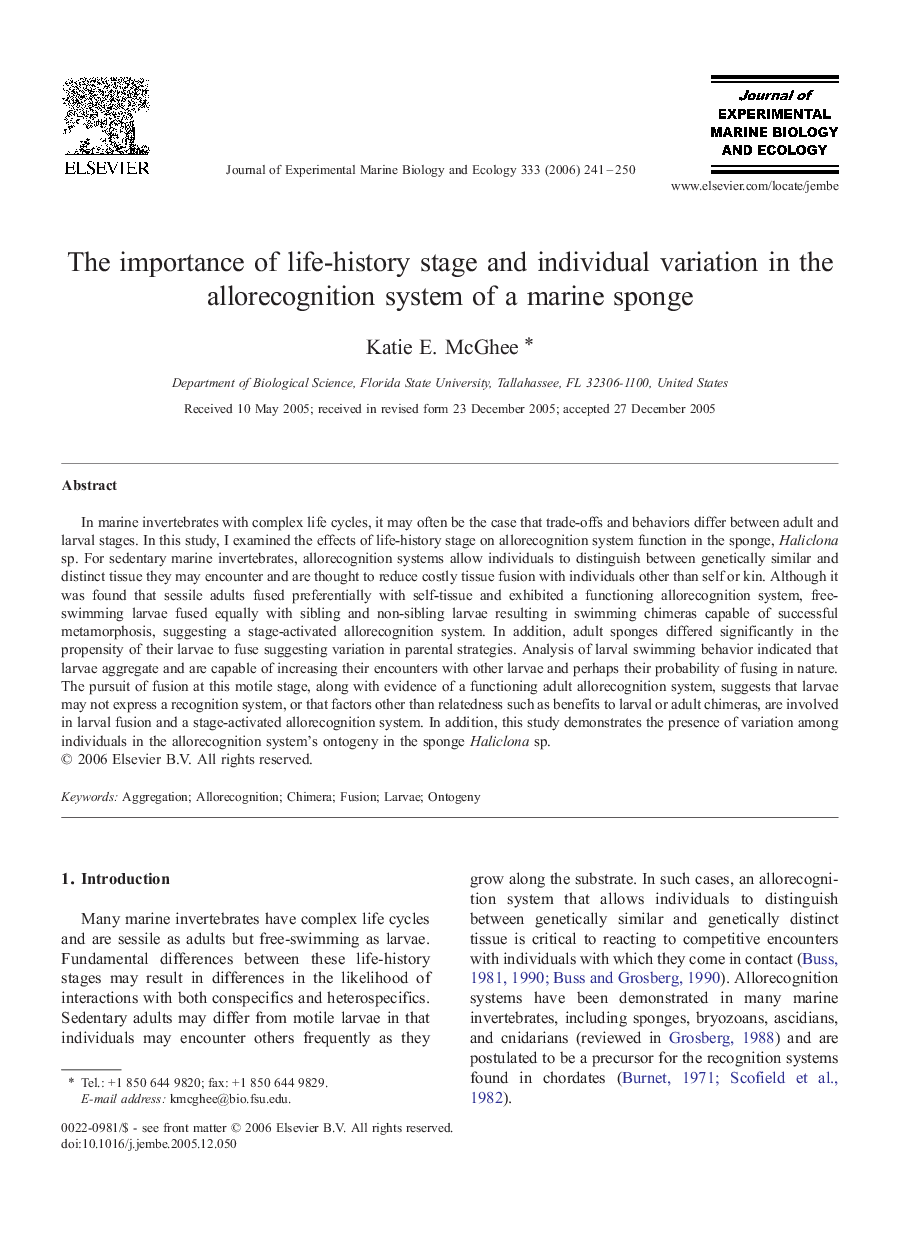| Article ID | Journal | Published Year | Pages | File Type |
|---|---|---|---|---|
| 4398118 | Journal of Experimental Marine Biology and Ecology | 2006 | 10 Pages |
Abstract
In marine invertebrates with complex life cycles, it may often be the case that trade-offs and behaviors differ between adult and larval stages. In this study, I examined the effects of life-history stage on allorecognition system function in the sponge, Haliclona sp. For sedentary marine invertebrates, allorecognition systems allow individuals to distinguish between genetically similar and distinct tissue they may encounter and are thought to reduce costly tissue fusion with individuals other than self or kin. Although it was found that sessile adults fused preferentially with self-tissue and exhibited a functioning allorecognition system, free-swimming larvae fused equally with sibling and non-sibling larvae resulting in swimming chimeras capable of successful metamorphosis, suggesting a stage-activated allorecognition system. In addition, adult sponges differed significantly in the propensity of their larvae to fuse suggesting variation in parental strategies. Analysis of larval swimming behavior indicated that larvae aggregate and are capable of increasing their encounters with other larvae and perhaps their probability of fusing in nature. The pursuit of fusion at this motile stage, along with evidence of a functioning adult allorecognition system, suggests that larvae may not express a recognition system, or that factors other than relatedness such as benefits to larval or adult chimeras, are involved in larval fusion and a stage-activated allorecognition system. In addition, this study demonstrates the presence of variation among individuals in the allorecognition system's ontogeny in the sponge Haliclona sp.
Related Topics
Life Sciences
Agricultural and Biological Sciences
Aquatic Science
Authors
Katie E. McGhee,
